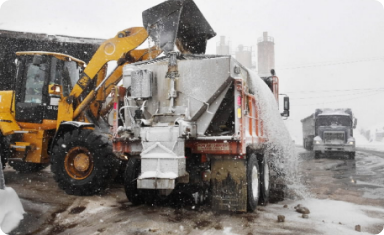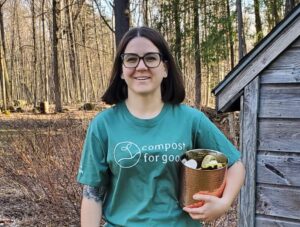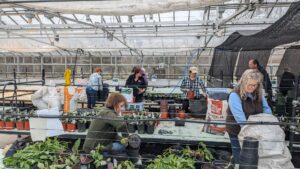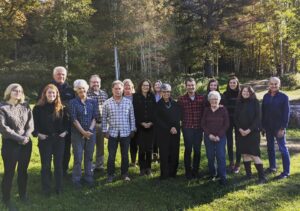A new study shows runoff from decades of road salting in the Adirondacks polluted more than half of the wells tested downslope from state roads and highways.
Testing by the Paul Smith’s College Adirondack Watershed Institute found 63 wells, or some 55 percent that got runoff from state roads, had sodium at levels above the federal guideline, which is 20 parts per million. The median level was 26 and the maximum was 748 ppm.
“The actual number of wells that are contaminated is way, way more than what we sampled,” said Dan Kelting, institute executive director. “So it is a much bigger issue.”
The federal Environmental Protection Agency says a large body of evidence suggests that excessive sodium intake contributes to age-related increases in blood pressure, which carries an increased risk of developing coronary heart disease, stroke, congestive heart failure, renal insufficiency, and peripheral vascular diseases.
Last week, the state Department of Transportation announced pilot programs to cut its use of salt on some stretches of road near Lake George and Mirror Lake.
Meanwhile, attorney Bill Owens in Plattsburgh said he’s in an “exploratory” phase of a possible lawsuit by affected landowners against the state for contaminating their wells. Possible relief could include getting new water lines or desalination systems and bottled water in the meantime, he said.
The study was funded by AdkAction, a nonprofit group founded by permanent and seasonal Adirondack Park residents, and the Fund for Lake George.
Well samples sent in from 358 volunteers from all around the Adirondack Park were tested, most from the eastern half, many from the regions around the Saranac Lakes and North Creek.
The testing found only 10 percent with elevated levels among 112 that were downslope and getting runoff from local roads, where less or no salt is used against icing.
None exceeded health guidance levels among the 132 wells that were upslope of the state or local roadways, where there was no road runoff. That median was 3 ppm and the maximum was 17.
Almost 193,000 tons of salt are spread on highways and local roads annually in the Adirondacks to help protect drivers from skidding on ice, with almost 7 million tons of sodium chloride spread and joining runoff into waterways and wells since 1980, according to Kelting.
Most of the Adirondack road salt, about 110,000 tons annually, is applied to state roads and highways, according to Kelting. They comprise only about one-fourth of the Adirondacks’ total roadways, but often have higher speed limits than local roads, many of which are plowed and sanded or just plowed, he said.
State officials have been briefed and examined the study, Kelting said. The state Department of Health has offered to test for free the well water of affected homeowners and begun doing that, he said.
Original Article: https://www.timesunion.com/local/article/Study-Road-salt-tainted-wells-12967471.php#photo-15670162





